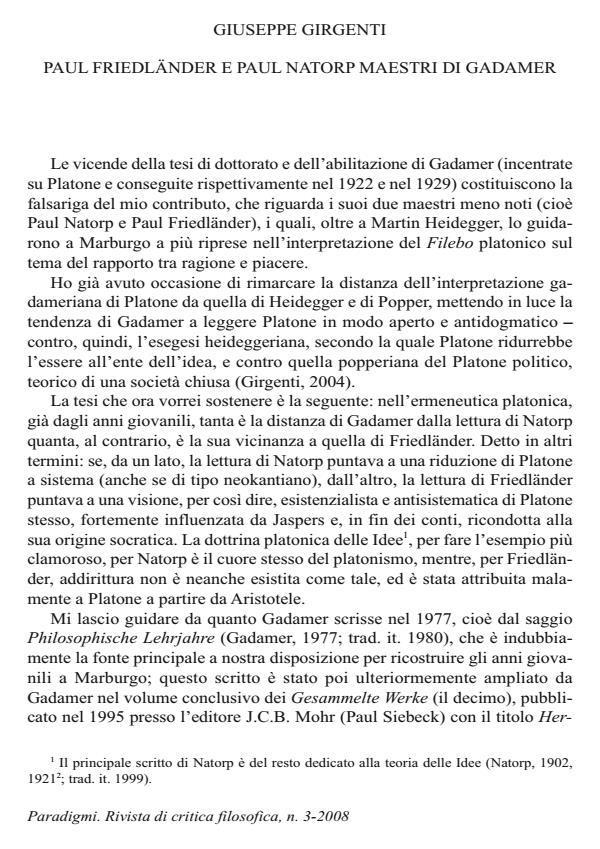Paul Friedlander e Paul Natorp maestri di Gadamer
Journal title PARADIGMI
Author/s Giuseppe Girgenti
Publishing Year 2009 Issue 2008/3
Language Italian Pages 10 P. 43-52 File size 69 KB
DOI
DOI is like a bar code for intellectual property: to have more infomation
click here
Below, you can see the article first page
If you want to buy this article in PDF format, you can do it, following the instructions to buy download credits

FrancoAngeli is member of Publishers International Linking Association, Inc (PILA), a not-for-profit association which run the CrossRef service enabling links to and from online scholarly content.
Paul Natorp and Paul Friedländer’s influence on Hans-Georg Gadamer - The aim of this paper is to review the influences of Paul Natorp and Paul Friedländer on the early studies of Hans-Georg Gadamer (both on Plato). Paul Natorp and Paul Friedländer, Gadamer’s teachers in the Twenties, influenced his interpretation of Plato’s Philebus on the relationship between reason and pleasure. Heidegger and Natorp proposed a restricted interpretation of Plato’s theory of ideas, and, in general, both had a strong ontological and epistemological view of Platonism. On the contrary, Friedländer, as a philologist, proposed a socratic interpretation of Plato, and an open-minded reconstruction of his thought. We want to show that Gadamer’s interpretation of Plato’s philosophy, even in its early stages and his construction of hermeneutics was as far removed from Natorp’s as it was close to Friedlander’s interpretation. The Platonic doctrine of Ideas, for example, is considered by Natorp as the heart of Platonism, while, according to Friedländer, a theory of Ideas did not strictly even exist: it had been attributed to Plato by Aristotle and, after him, by a long philosophical tradition. According to Friedländer, the truth of the Idea is to be found in the reality of Life, and vice versa, in a circular way, as a Lebensphilosophie.
Giuseppe Girgenti, Paul Friedlander e Paul Natorp maestri di Gadamer in "PARADIGMI" 3/2008, pp 43-52, DOI: